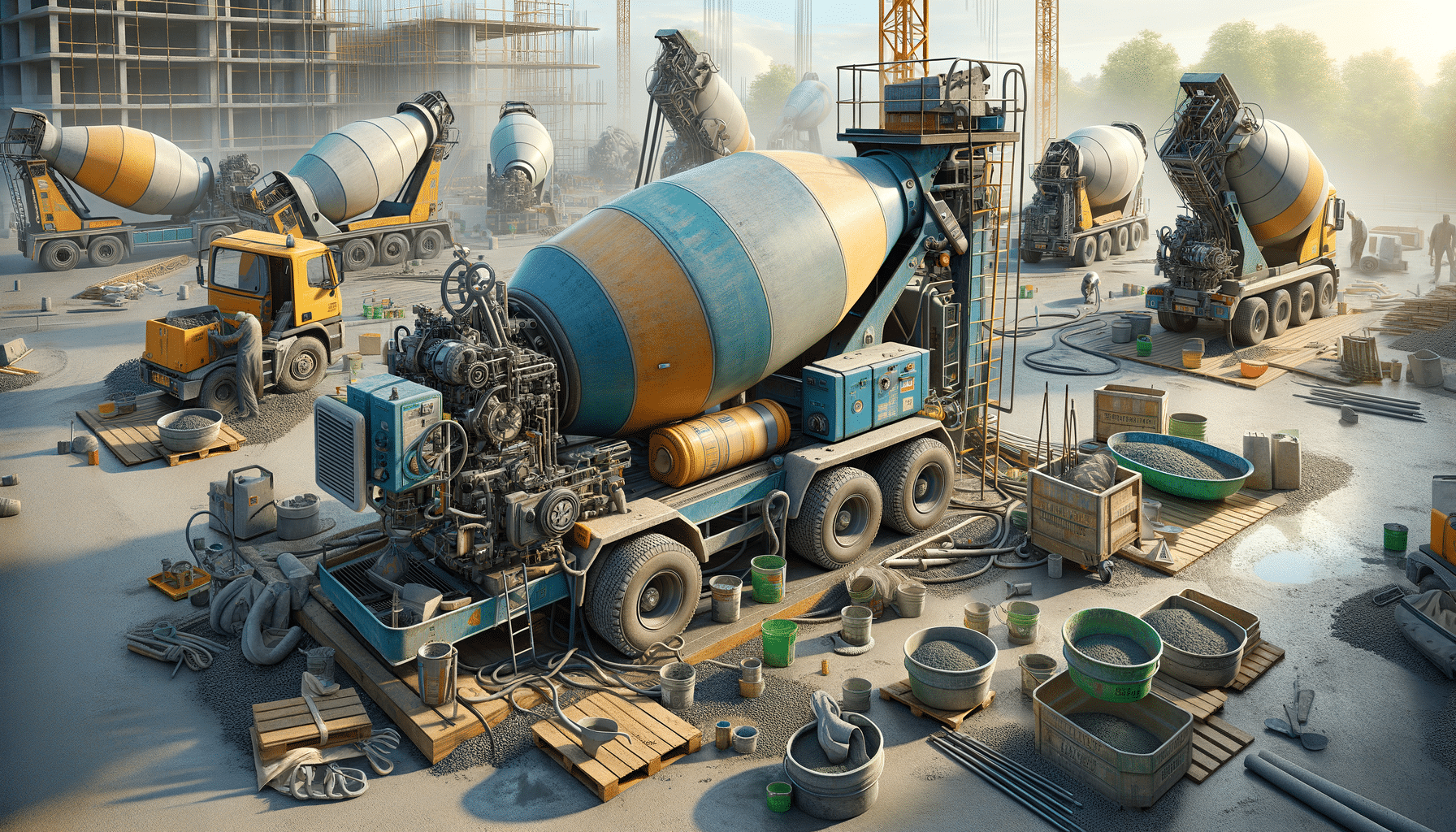
Understanding Concrete Mixers: Essential Tools for Construction
Introduction to Concrete Mixers
Concrete mixers are indispensable tools in the construction industry. They play a crucial role in ensuring that concrete is mixed uniformly, providing a consistent mixture that is vital for the structural integrity of buildings and other infrastructures. Without the use of concrete mixers, achieving the desired quality and strength of concrete would be a challenging task, especially on a large scale. This article delves into the various aspects of concrete mixers, exploring their types, applications, and the technology behind them.
Types of Concrete Mixers
Concrete mixers come in various types, each designed to meet specific needs and project scales. The most common types include:
- Batch Mixers: These mixers are used for mixing concrete in batches. They are suitable for small to medium-sized projects and are known for their efficiency and ease of use.
- Continuous Mixers: As the name suggests, these mixers operate continuously, making them ideal for large-scale construction projects where a constant supply of concrete is required.
- Drum Mixers: These are the most common type of mixers and are characterized by a rotating drum that mixes the concrete. They are versatile and can be used for various types of concrete mixes.
- Pan Mixers: Known for their high mixing quality, pan mixers are often used for precast concrete products and other applications requiring a consistent mix.
Each type of mixer has its advantages and is chosen based on the specific requirements of the construction project.
Applications of Concrete Mixers
Concrete mixers are utilized in a wide range of construction activities. Some of the primary applications include:
- Building Construction: Mixers are essential for preparing concrete for foundations, floors, and structural elements.
- Infrastructure Projects: Large-scale projects such as bridges, highways, and dams rely heavily on mixers to provide the necessary volume and quality of concrete.
- Precast Concrete Production: Mixers are used to produce precast concrete elements like beams, slabs, and blocks, ensuring uniformity and strength.
The versatility of concrete mixers makes them vital across various construction domains, ensuring efficiency and quality in concrete production.
Technology and Innovations in Concrete Mixers
Recent advancements in technology have significantly enhanced the functionality and efficiency of concrete mixers. Modern mixers are equipped with advanced features such as:
- Automated Controls: These allow for precise control over mixing speed and duration, improving the consistency of the concrete mix.
- Enhanced Mobility: Portable mixers have become more common, providing flexibility and convenience on construction sites.
- Energy Efficiency: Newer models are designed to be more energy-efficient, reducing operational costs and environmental impact.
These innovations have made concrete mixers more user-friendly and effective, contributing to the overall advancement of the construction industry.
Conclusion: The Impact of Concrete Mixers
Concrete mixers are fundamental to the construction industry, providing the means to produce high-quality concrete efficiently and consistently. Their diverse types and applications make them suitable for a wide range of projects, from small residential buildings to massive infrastructure developments. As technology continues to evolve, concrete mixers are likely to become even more efficient and versatile, further enhancing their role in construction. For construction professionals, understanding the capabilities and benefits of different types of concrete mixers is essential for optimizing project outcomes.


